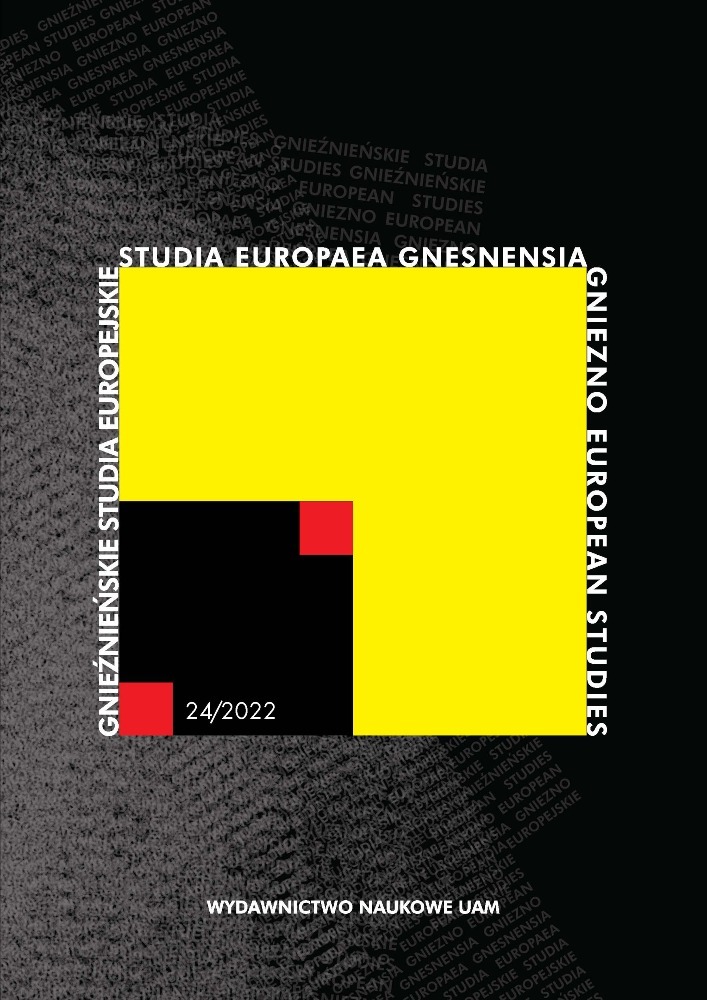Abstrakt
This paper explores the reasons why ἡ Τοπειριτῶν πόλις obtained the Trajanic nomen gentilicium Οὐλπία in its title. The question arises since it appears on the municipal coin series minted for Topeiros at a particular moment in time, specifically in 212 AD. This coincides with an imperial visit which Caracalla and his mother Julia Domna paid in the city. The author argues that by using such propaganda gimmick, the local authority sought to attract the emperor’s attention to the privileges and most probably territorial extension granted byTrajan but later delayed by Hadrian. The lands in question had originally belonged to the neighboring city of Abdera. It appears that the town leaders of Topeiros succeeded, since an in scription dated to the reign of Maximinus Thrax (235-238) shows a vast extension of the municipality’s landhold eastwards.
Bibliografia
I Aeg. Thrace 2005 – Epigraphes tēs Thrakēs tou Aigaiou: metaxy tōn potamōn Nestou kai Hevrou (nomoi Xanthēs, Rhodopēs kai Hevrou), eds. L.D. Loukopoulou, M. Gabriella Parissaki, S. Psoma, A. Zournatzi, with the assistance of D. Triantaphyllo and others, Athens.
IGBulg. I 2 1970 – Inscriptiones graecae in Bulgaria repertae, ed. G. Mihailov, 1, 2 nd edn., Inscriptiones orae Ponti Euxini, Sofia
IGBulg. II 1958 – Inscriptiones graecae in Bulgaria repertae, ed. G. Mihailov, 2. Inscriptiones inter Danubium et Haemum repertae, Sofia .
SEG 1923 – Supplementum Epigraphicum Graecum.
Adams J.P. 1986, Topeiros Thraciae. The Via Egnatia and the boundaries of Macedonia, [in:] Ancient Macedonia. IV. Papers read at the Fourth International Symposium held in Thessaloniki, September 21-25, 1983, Thessaloniki, p. 17-42.
Boteva D. 1997, Dolna Mizia i Trakia v rimskata imperska sistema (193-217/218) g. sl. Hr., Sofia.
Burton G. 2000, The Resolution of Territorial Disputes in the Provinces of the Roman Empire, Chiron, 30, p. 195-212.
Dmitriev S. 2005, City government in Hellenistic and Roman Asia Minor, Oxford.
Forni G. 1985, Le tribù romane. III. 1. Le pseudo-tribù, Roma.
Galsterer-Kröll B. 1972, Untersuchungen zu den Beinamen des Städte des Imperium Romanum, Epigraphische Studien, 9, p. 44-145.
Gerov B. 1980, Zemevladenieto v Rimska Trakia i Mizia (І-ІІІ v.) = GODISHNIK na Sofiyskia Universitet, Fakultet po Klasicheski i Novi filologii 1977, LXXII, 2, Sofia.
Harl K. 1987, Civic coins and Civic Politics in the Roman East (A.D. 180-275), Berkeley.
Hartmann J., Macdonald G. 1969, Greek numismatic epigraphy, Chicago.
Magie D. 1950, Roman rule in Asia Minor to the end of the third century after Christ, I-II, Princeton. https://doi.org/10.1515/9781400887743 DOI: https://doi.org/10.1515/9781400887743
Poulter A. 1995, Nicopolis ad Istrum: A Roman, Late Roman, and Early Byzantine city (Excavations 1985-1992), Journal of Roman Studies Monographs 8, London.
Schönert-Geiss B. 1968, Das Ende der Provinzialprägung in Thrakien und Mösien, Klio 50, p. 251-256. https://doi.org/10.1524/klio.1968.50.50.251 DOI: https://doi.org/10.1524/klio.1968.50.50.251
Thomasson B. 2011, Laterculi praesidium, 1: ex parte retractatum, Göteborg.
Topalilov I. 2007, Povaprosa za poyavata i razprostranenieto na epiteta Ulpia v imenata na peregrinalnite gradove v Rimska Trakia, І, Acta Musei Varnensis 5, p. 400-421.
Topalilov I. 2007, Ulpia Nicopolis ad Istrum and Claudia Leucas. Two examples with drawn peregrine city-titles [in:] A. Iakovidou (ed.), Thrace in the Graeco-Roman world, II, Athens, p. 620-627.
Licencja
Prawa autorskie (c) 2022 Ivo Topalilov

Utwór dostępny jest na licencji Creative Commons Uznanie autorstwa 4.0 Międzynarodowe.

